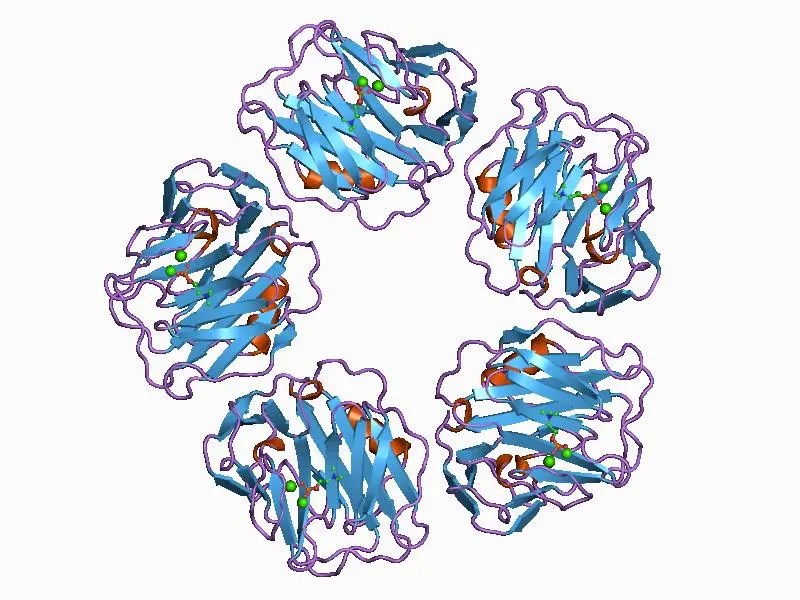CRP (C-Reactive Protein) in Veterinary Diseases: Understanding Its Roles
CRP is an inflammation marker, which increases in inflammation or infection. They are also connected with different diseases, for instance, cardiovascular disorders.
| Catalog No. | Products Name | Detected Species | Products Information |
| GMP-BOV-CRP-Ag | C-Reactive Protein | Bovines/Cattle | Details |
| GMP-BOV-CRP-Ab |
Anti-Bovine CRP monoclonal antibody (mAb) | Bovines/Cattle | Details |
| GMP-CAN-CRP-Ag | C-Reactive Protein | Dog/Canine | Details |
| GMP-CAN-CRP-Ab |
Anti-Canine C-Reactive Protein (CRP) monoclonal antibody (mAb) | Dog/Canine | Details |
| GMP-EQU-CRP-Ag | C-Reactive Protein | Equine/Horse | Details |
| GMP-EQU-CRP-Ab |
Anti-Equine CRP monoclonal antibody (mAb) | Equine/Horse | Details |
| GMP-FEL-CRP-Ag | C-Reactive Protein | Cat/Feline | Details |
| GMP-FEL-CRP-Ab |
Anti-Feline CRP monoclonal antibody (mAb) | Cat/Feline | Details |
Validation Data
GeneMedi's anti-cCRP monoclonal antibodies achieve excellent performance in immunoassays.
GeneMedi's monoclonal antibodies targeting cCRP (canine C-reactive protein) deliver outstanding performance across different immunoassay systems, ensuring high sensitivity and reliability for accurate cCRP detection. These antibodies are designed to support consistent and precise results, making them ideal for various diagnostic and research applications.

Figure 1. GeneMedi’s GMP-CAN-CRP monoclonal antibodies exhibit superior performance in sandwich and direct ELISA assays.
A.Calibration curve for natural cCRP antigen in the sandwich immunoassay.
B.Canine CRP levels in serum samples from both inflammatory and healthy individuals were measured using antibody pairs in a sandwich immunoassay.
C-D. Sandwich immunoassay was performed to compare PC (phosphocholine) and GMP-CAN-CRP-Ab01 as the capture antibody in the presence (C) and absence (D) of Ca2+.
E.Presence of PC does not affect CRP detection in sandwich immunoassays.
F.Detection of natural cCRP on a direct ELISA platform in the presence of Ca2+ or EDTA using GMP-CAN-CRP-Ab06.
G.The optimal antibody pairs selected based on the immunoassay system.
GeneMedi's anti-cCRP polyclonal antibodies and recombinant cCRP are suitable for use in the sandwich immunoassay system.
GeneMedi supplies polyclonal antibodies that can be used for the development of cCRP immunoassay systems, as well as recombinant antigens suitable for the calibration of cCRP immunoassay reagents, both of which exhibit excellent performance in the sandwich immunoassay system.

Figure 2. GeneMedi’s anti-cCRP polyclonal antibodies and recombinant cCRP show superior performance in sandwich ELISA assays.
A.Calibration curves for recombinant cCRP using mAb-mAb (red) and pAb-mAb (green) antibody pairs in the sandwich immunoassay.
B.Detection results of serum cCRP from normal and systemically inflamed dogs using two antibody pairs in a sandwich immunoassay.
C.Calibration curves for natural and recombinant cCRP in a sandwich immunoassay.
D.Titration curves for recombinant and natural cCRP in a sandwich immunoassay using PC as the capture molecule.
Decoding CRP: A Key Biomarker for Inflammation in Pets
C-Reactive Protein (CRP) is a blood biomarker that is generated by the liver when the body releases infl ammatory markers. It belongs to the acute phase reactant proteins because levels of this protein increase when there is inflammation at any part of the body. Thus, although in human medicine, the oxidized lipid, CRP is often used to identify and monitor inflammation and infections, in veterinary medicine, CRP testing is also used more often with similar goals.
In animals it can be quantified in the sera and be used as to indicate levels of inflammation or infection within the animal. Chronic low-grade inflammation is associated with a number of disorders as indicated by increased serum levels of CRP in animals– bacterial and viral infections, inflammation, trauma and neoplastic disease. Therefore, it is recommended that veterinarians use CRP levels in diagnosing and managing different incidences in pets as well as other animals.

From Infection to Inflammation: Diseases Detected by CRP in Animals
| Animals | Normal Range | Possible Diseases Listed | Specimens/Biofluids | Measurement Method |
|---|---|---|---|---|
| Dog | <10 µg/mL | Infectious Diseases, Inflammatory Conditions, Autoimmune Diseases, Neoplastic Conditions, Cardiac Diseases, Kidney Diseases, Liver Diseases, Pancreatitis, Osteoarthritis, Pyometra | Blood, Urine, Other Fluids | Various, depending on the biomarker |
| Cat | <10 µg/mL | Infectious Diseases, Inflammatory Conditions, Autoimmune Diseases, Neoplastic Conditions, Cardiac Diseases, Kidney Diseases, Liver Diseases, Pancreatitis, Diabetes Mellitus, Feline Immunodeficiency Virus (FIV) | Blood, Urine, Other Fluids | Various, depending on the biomarker |
| Horse | - | Infectious Diseases, Inflammatory Conditions, Colic, Laminitis, Metabolic Syndrome, Respiratory Diseases, Equine Infectious Anemia, Gastrointestinal Parasites, Muscle Disorders, Reproductive Disorders | Blood, Urine, Other Fluids | Various, depending on the biomarker |
| Cattle | - | Infectious Diseases, Inflammatory Conditions, Metabolic Disorders, Mastitis, Respiratory Diseases, Bovine Viral Diarrhea, Johne's Disease, Nutritional Deficiencies, Parasitic Infections, Reproductive Disorders | Blood, Milk, Urine, Other Fluids | Various, depending on the biomarker |






